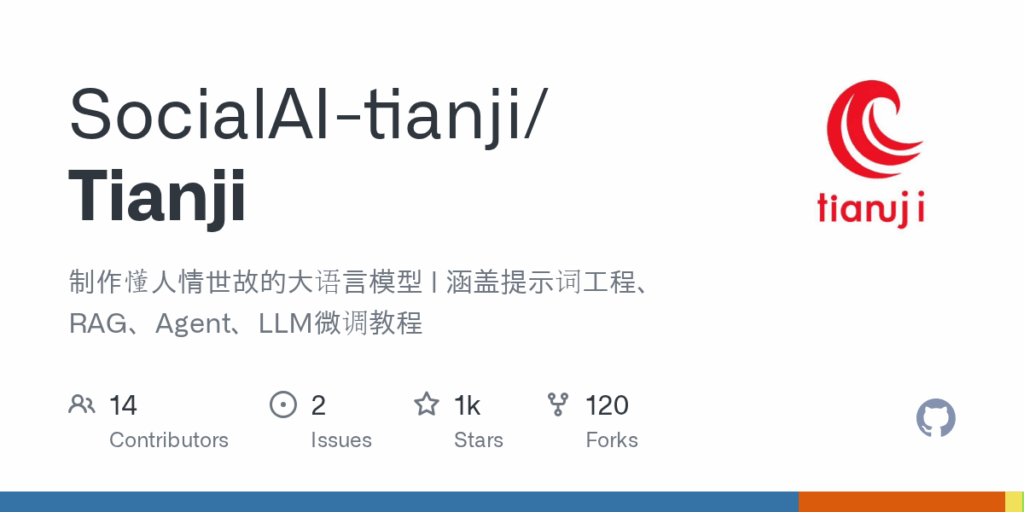Tianji
Basic Information
Tianji is an open source project for building and experimenting with large language model applications focused on social etiquette and interpersonal scenarios. It bundles end-to-end resources for developers and researchers including prompt engineering collections, retrieval-augmented generation (RAG) knowledge bases, agent implementations, model fine-tuning recipes, and data manufacturing and cleaning tools. The repository provides runnable demos and frontends for prompt, RAG and agent modes, example scripts to call various online and local LLMs, and guidance on environment and API key configuration. It also publishes curated datasets and fine-tuned models for specific social scenarios and contains documentation and tutorials aimed at teaching full-stack LLM application development for vertical domains.








